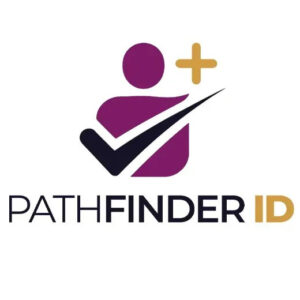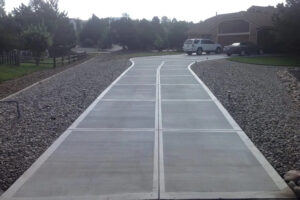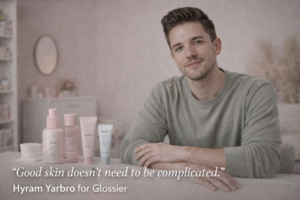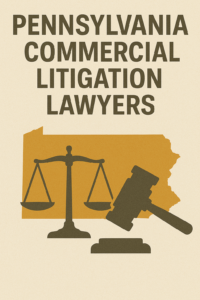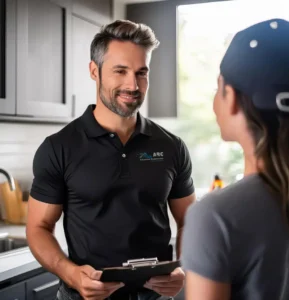
Key Takeaways
- Yuba City’s leading alcohol recovery programs combine evidence-based therapies with holistic approaches to address the whole person, not just the addiction.
- Cognitive-behavioral therapy, motivational enhancement therapy, and family-centered treatment models form the backbone of effective recovery programs.
- FDA-approved medications like naltrexone, acamprosate, and disulfiram play a crucial role in many treatment plans when medically appropriate.
- Trauma-informed approaches including EMDR and experiential therapies help address underlying causes of alcohol dependency.
- Addiction Resource Center provides comprehensive assessment and personalized treatment planning for those seeking recovery options in the Yuba City area.
Holistic Alcohol Recovery: What Makes Integrative Programs Effective
Overcoming alcohol dependency requires a whole-person approach, something Yuba City residents are finding in successful recovery programs. Effective treatment addresses physical aspects of addiction alongside emotional, psychological, and social components.
The Addiction Resource Center champions this integrative approach, understanding that recovery varies for each person. Their thorough assessment ensures individuals receive personalized treatment plans tailored to specific needs and circumstances.
Yuba City’s leading programs distinguish themselves by merging scientifically validated treatments with supportive healing environments. This combined approach builds a foundation for lasting recovery that goes beyond abstinence—it reconstructs lives.
Evidence-Based Behavioral Therapies That Transform Lives
1. Cognitive-Behavioral Therapy for Changing Thought Patterns
Cognitive-Behavioral Therapy (CBT) forms a cornerstone of effective alcohol treatment in Yuba City programs. This therapeutic method helps people identify and modify negative thought patterns contributing to problematic drinking behaviors.
During CBT sessions, participants learn to recognize personal triggers—specific people, places, emotions, or situations that spark cravings. Once identified, therapists collaborate with clients to develop healthy coping strategies replacing the impulse to drink. This skills-based method gives individuals tools to handle life’s challenges without alcohol.
CBT’s success stems from its practical nature. Clients actively develop and practice real-world solutions rather than simply discussing problems, creating lasting behavioral change.
2. Motivational Enhancement and Mindfulness Techniques
Motivational Enhancement Therapy (MET) tackles a major recovery obstacle: ambivalence about changing drinking behaviors. This approach, widely used in top Yuba City programs at ARC, helps clients build internal motivation rather than imposing external expectations.
Through structured sessions, therapists help individuals clarify personal values and goals, then identify how drinking conflicts with achieving these aims. This self-discovery process generates powerful motivation from within rather than from outside sources.
Alongside MET, mindfulness-based interventions teach present-moment awareness and acceptance. These practices help people in recovery observe cravings without automatically acting on them, creating space between impulse and action—an essential skill for long-term sobriety.
3. Family-Centered Treatment Models
Alcohol use disorder affects entire family systems, not just individuals. Recognizing this fact, Yuba City’s premier recovery programs incorporate family-centered treatment approaches that repair relationships damaged by addiction.
Evidence-based family therapy sessions include loved ones in the recovery process, teaching them about addiction while addressing unhealthy communication patterns and establishing appropriate boundaries. This approach acknowledges that family members often need their own healing and provides tools for supporting recovery without enabling problematic behaviors.
Family involvement makes treatment more comprehensive and sustainable. When households understand the recovery process and develop healthier interaction patterns, the person in recovery returns to an environment supporting sobriety rather than undermining it.
Trauma-Informed Approaches for Comprehensive Healing
EMDR Therapy for Processing Underlying Trauma
Unresolved trauma often underlies alcohol dependency for many Yuba City residents. Eye Movement Desensitization and Reprocessing (EMDR) therapy has become a valuable tool for addressing these foundational wounds.
EMDR helps clients process disturbing memories through a structured eight-phase approach, combining bilateral stimulation (usually guided eye movements) with cognitive processing. This specialized therapy allows people to reprocess traumatic experiences potentially driving their alcohol use, reducing the emotional intensity these memories carry.
EMDR’s effectiveness in trauma treatment has made it central to comprehensive alcohol recovery programs in Yuba City. By treating the underlying trauma, many find their need to self-medicate with alcohol naturally decreases.
Experiential Therapies: Art, Music, and Adventure-Based Recovery
Traditional talk therapy alone sometimes cannot access and heal deep emotional wounds. Experiential therapies offer additional pathways to recovery through creative and physical activities.
ARC’s holistic recovery programs use various experiential methods, which may include:
- Art therapy sessions where clients express feelings difficult to verbalize through painting, drawing, or sculpting
- Music therapy that uses music’s emotional power for healing and self-expression
- Adventure therapy which develops confidence, teamwork, and coping skills through outdoor challenges
- Equine therapy where horse interactions promote emotional awareness and relationship skills
These therapies create safe spaces for emotional expression that supplement traditional cognitive approaches. For many people in recovery, experiential modalities unlock healing unavailable through conversation alone.
Mutual Support Networks Strengthening Yuba City Programs
12-Step Programs and Their Role in Local Treatment
Alcoholics Anonymous (AA) and similar 12-step fellowships have supported recovery in Yuba City for decades. These peer communities provide structure, accountability, and connection—critical elements for sustained sobriety.
Many professional treatment programs in the area incorporate 12-step facilitation, helping clients connect meaningfully with these support communities. Combining professional therapy with peer support creates effective synergy, addressing both clinical and social aspects of recovery.
AA’s accessibility—with meetings throughout Yuba City at various times—means individuals in recovery can find support whenever needed, even after formal treatment ends. This continuing care aspect makes 12-step programs valuable components of many recovery journeys.
Secular Alternatives: SMART Recovery, LifeRing, and More
While 12-step programs help many individuals, Yuba City recovery professionals recognize they don’t fit everyone. Many local treatment centers now connect clients with secular support groups providing community without spiritual components.
SMART Recovery (Self-Management and Recovery Training) offers a science-based approach emphasizing self-empowerment and practical skills for maintaining abstinence. With growing availability in Yuba City, these meetings provide alternative support for those seeking peer connection outside the 12-step model.
Other secular options for Yuba City residents include LifeRing, which focuses on personal growth and strengthening one’s ‘sober self,’ and Women for Sobriety, which addresses women’s specific recovery needs. These varied support networks ensure everyone can find a community matching their personal values and recovery approach.
Tailored Care: How Programs Match Treatment to Individual Needs
Outpatient Services for Those Maintaining Daily Responsibilities
Most people seeking alcohol recovery in Yuba City benefit from outpatient treatment, allowing them to receive professional care while continuing work, school, or family responsibilities. These flexible programs adjust in intensity to match individual needs and circumstances.
Standard outpatient programs typically include one to three weekly sessions focused on counseling, education, and skill development. For those needing additional support, intensive outpatient programs (IOPs) provide structured treatment several days weekly, usually three to four hours per session, while clients maintain their daily activities.
Outpatient care works especially well for people with strong support systems and stable living situations. To this end, ARC’s professionals carefully evaluate each person’s circumstances to determine if this care level provides enough structure for successful recovery.
Intensive and Residential Options for Comprehensive Support
For those with severe alcohol use disorders or complex co-occurring conditions, ARC offers higher-intensity care providing structure and monitoring needed for safe, effective recovery.
Residential treatment programs create healing environments where clients live temporarily while receiving continuous care and participating in therapeutic activities. These immersive programs remove individuals from triggers in their home environment, allowing complete focus on recovery.
For those needing medical supervision, particularly during alcohol withdrawal, the ARC team provides access to medically managed intensive inpatient services. These programs offer 24-hour nursing care and physician availability to ensure safety during early recovery stages.
Telehealth Innovations Expanding Access in Yuba City
Technology has changed how recovery services reach Yuba City residents, reducing treatment barriers through telehealth options. Virtual counseling sessions, online support groups, and digital recovery tools now supplement traditional in-person services.
These telehealth options particularly benefit rural residents around Yuba City, people with transportation limitations, and individuals whose work schedules complicate in-person appointments. Research confirms telehealth alcohol treatment effectively reduces alcohol consumption and often appeals to younger adults seeking recovery.
Many Yuba City providers, including ARC, now offer combined models, blending telehealth convenience with in-person components as needed, creating flexible, accessible care paths adapted to individual situations.
Recovery Success: The Power of Evidence-Based, Holistic Treatment
Successful alcohol recovery programs in Yuba City share a common foundation: they combine scientifically-proven treatments with individualized care addressing the whole person. This integration of evidence-based therapies, appropriate medication, and holistic support creates lasting recovery.
FDA-approved medications such as naltrexone, acamprosate, and disulfiram contribute significantly to many treatment plans, helping reduce cravings and support abstinence. Combined with behavioral therapies and mutual support, these medications improve outcomes for many individuals.
Yuba City’s premier programs stand out by treating the whole person—not just the addiction. They address physical health, mental wellbeing, social connections, and spiritual needs based on individual values and preferences.
If you or someone you care about struggles with alcohol dependency, effective, compassionate help exists in Yuba City. The Addiction Resource Center connects individuals with recovery resources matching their specific needs and circumstances. Contact the team today at (530) 593-1098 to learn more!
Addiction Resource Center LLC.
1002 Live Oak Blvd.
Suite A
Yuba City
CA
95991
United States

